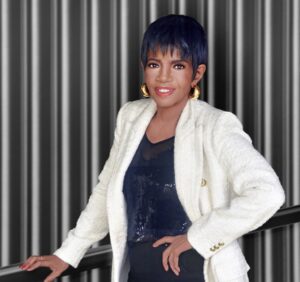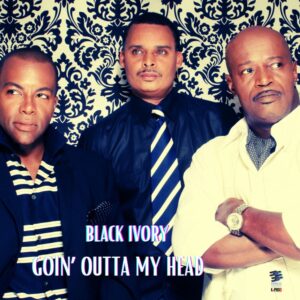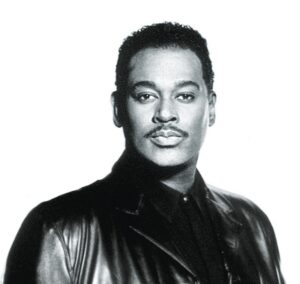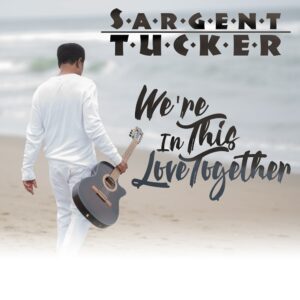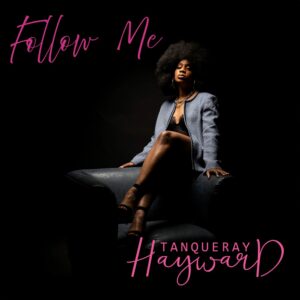Official Biography (courtesy of Dirty Revival)
“Big, gritty, and honest. Our sound is unique but pulls elements of our favorite genres: soul, funk, hip-hop, R&B, jazz, gospel, and rock,” says Sarah Clarke, the resounding, and resonating, front woman for Portland, Oregon-based Dirty Revival.
Also comprised of Evan “evv’n’flo” Simko (M.C., guitar), Terry Drysdale (drums), Karl Ludwigsen (keyboards), and Jon Shaw (bass), the quintet shines on their self-titled, debut full-length.
“Someone once described us as Aretha Franklin, Stevie Wonder, Earth Wind and Fire, and Rose Royce all blended up as one,” Clarke says of the comparisons her band has already started to receive. “I nearly fainted. What a massive compliment.”
Expanding on that, Simko says, “I think people will find a great variety of influences or comparisons, to name a few: P-Funk, Aretha Franklin, James Brown, Bill Withers, Charles Bradley, Jill Scott, Erykah Badu, D’Angelo, and The Roots. It’s hard to say. I think there are so many influences that it won’t quite sound like anyone in particular.”
Their debut is a representation of all of this, a melting pot of influences and personalities, with all five members getting their voice, literally and metaphorically, contained within the sounds of the album. While navigating different musical waters, the album also vacillates between fiercely political uprisings to down and gritty party jams that are meant to make you smile and dance.
“The album is about honesty,” says Clarke. “It is candid and sincere, the same way we as a group approach music in general. ‘Breathe’ is a song decrying the racial tensions in our society as we see it. ‘Lay Me Down’ is about the brutal affect addiction has on people. ‘Take It Off’ is a take on lust. “Make It” is about the need for personal betterment. And then there are songs like ‘Dirty Love,’ which highlights our passion for performance. Essentially, every song on this album is an unadulterated take on music and the world that we see every day.”
Adds Drysdale, “It’s serious when it needs to be and fun the rest of the time.”
The band decided on self-titling their debut, as a representation of who they are.
“[This album is] our soul and identity as a group. We’ve spent the last three years writing, touring, and playing shows, all the while our sound has been evolving into what it is now, Dirty Revival, and the self-titled route just felt appropriate,” comments Drysdale.
While self-describing themselves as “soul-hop,” and stating that at the core they’re a soul band, anyone that listens to Dirty Revival will hear so much more than just a soul group, something the band is very proud of, and really set out to accomplish on their debut.
“There’s a lot of throwback soul out there that’s really great, and is a big influence for us, but we differ in that we’re not trying to 100% emulate that style,” says Shaw. “We take a lot of pop music cues from the 70s, 80s, and 90s and then use classic soul as a lens to focus our ideas into a song. With this album we’re casting a wide net of influences to help us hone our sound. After this whole process, I think we’re really starting to get there.”
The record is as natural as the band’s beginnings, with no long discussions or debates, just things gelling and making sense.
“People always ask how we picked the name Dirty Revival. I can never think of anything cool to say, that is just who we are. The day we came up with that name it wasn’t a big, long conversation, it was just accepted as fact,” remembers Clarke. “Over the last couple of years we have been growing into our own name and our music has begun to take on a unique sound. If you listen to our EP, The May Fourth Edition, and then to the music we have written in the last year and a half you will hear some of the same gritty sound in the EP, but with less direction, less purpose. This album represents us learning to musically articulate as a group, taking five different voices and blending them together in one strong and harmonious statement. Calling the album Dirty Revival is our way of introducing ourselves to the world as a unit, we are putting ourselves out there. This is who we are. Take it or leave it…but hopefully take it.”
Adds Drysdale: “The music was recorded live. This is how we sound when we play; the underlying force and energy behind each track is the band playing and tracking together in the studio. Most of the vocals were recorded live, too. Dirty Revival is just that, it’s Dirty Revival here; no tricks, layers, or studio magic – we performed these tracks and captured that in the recording.”
One of the album’s highlights for the band is the political “Breathe,” a hard-hitting, honest song that confronts the big issue of the racial and social-class issues we’re facing today.
“‘I am not on my own, please say that you’ll agree…'” Those are the beginning lyrics in the chorus of ‘Breathe.’ The lyric resonates with me because of its obvious meaning in the song, it’s about solidarity in response to the current events of police brutality and racism,” comments Simko. “But I also think of it as having a broader meaning; it is a statement about how nothing can be done alone. Accomplishing a dream, supporting each other as a community, and even making an album, and pursuing a career. There has been so much support and positive feedback in our efforts and we hope to return all the love by make a positive impact on our fans and friends.”
Before entering the studio, the band rehearsed more than ever before, fine-tuning what they thought would be every detail of the songs. However, once they hit the studio, they encountered many challenges, and realized how time consuming it really is to record seventeen people, including drums, bass, guitar, keys, lead vocals, four horns, three back-up singers, a string quartet, and percussion.
“This is my first experience working on an album,” admits Clarke. “So, when we started talking strings, percussion, punch-ins, synths, and everything else, I was having a hard time connecting with the idea of these embellishments. It just seemed so over the top. Then I started doing something I had never truly done and began listening to music with a hyper critical ear. It was crazy to really focus on some of my favorite albums, pulling things out of the mix I had never really heard before. In some ways, that made the music come to life again. If you can imagine hearing the same songs over and over again, day in and day out, hearing them with those subtle changes makes a world of difference. The final product is better than I could have imagined and I am still finding little things that make me excited when I listen to it. “
“I think this was a good learning experience,” confirms Ludwigsen. “The quality of our songs really surprised me. “I mean, you play them all the time and then when you have a chance to finally hear it back, I just thought, ‘Wow! I like that.'”
Now, with the record done, the band just wants to get their music out there, share it with people, and hope that those people want them to come to their city and play live for them. And, the band, will be happy to oblige, with heavy touring this fall into next year slated in support of Dirty Revival.
